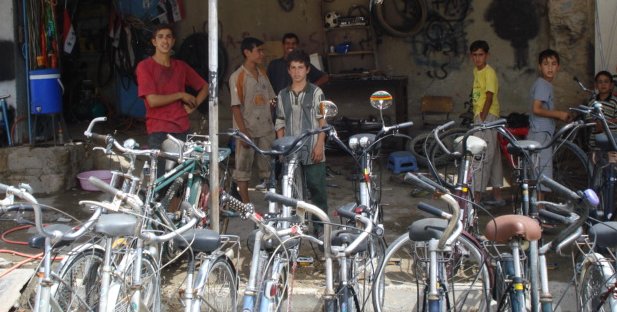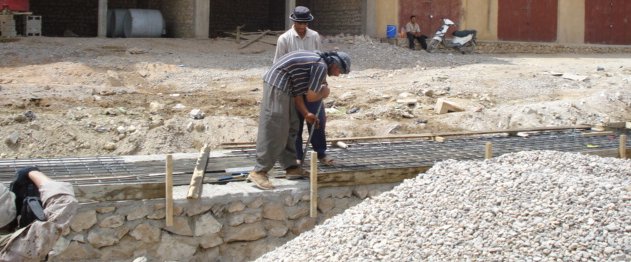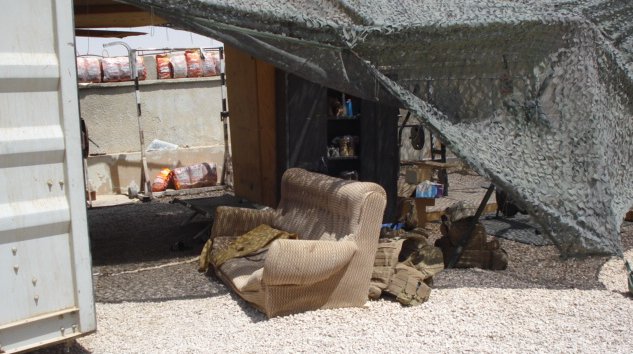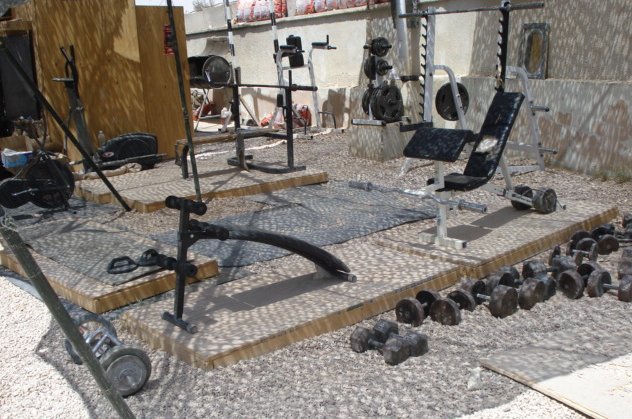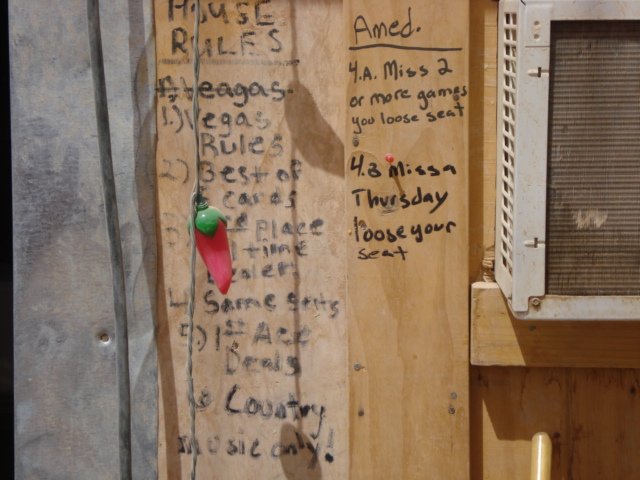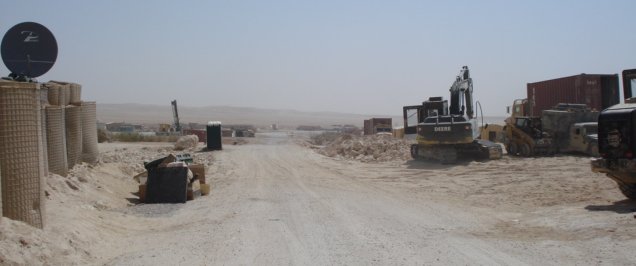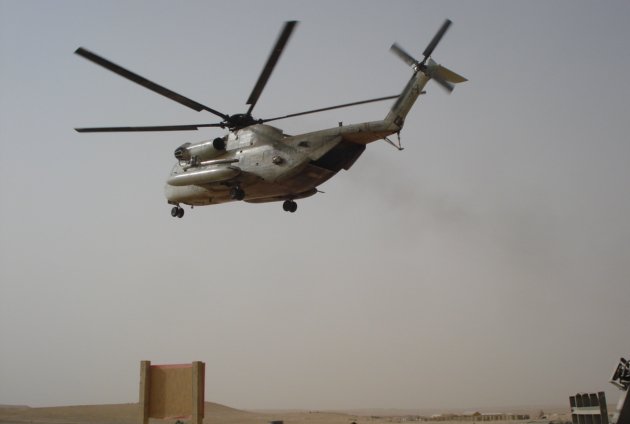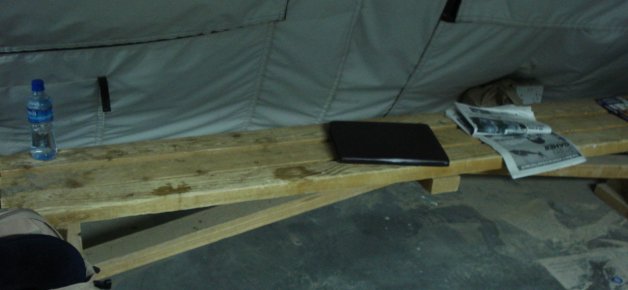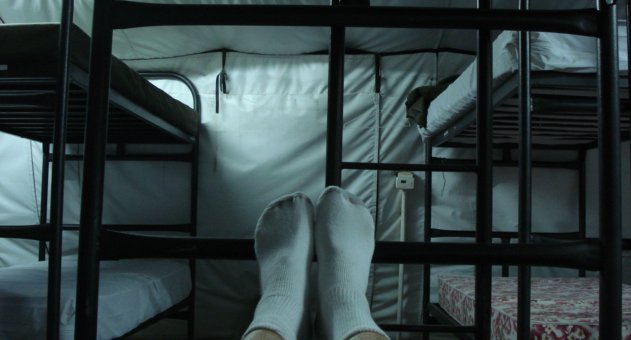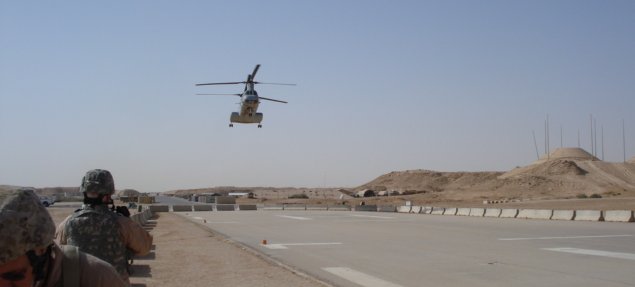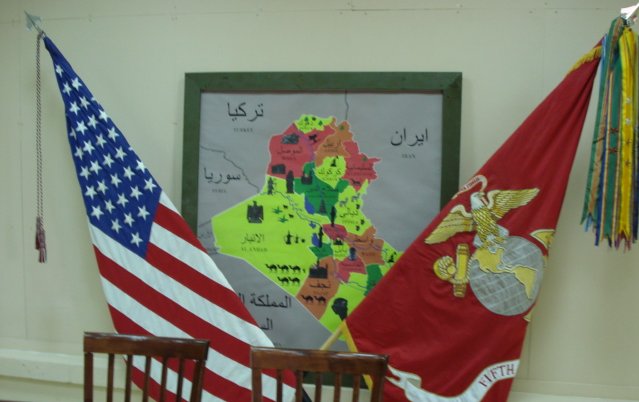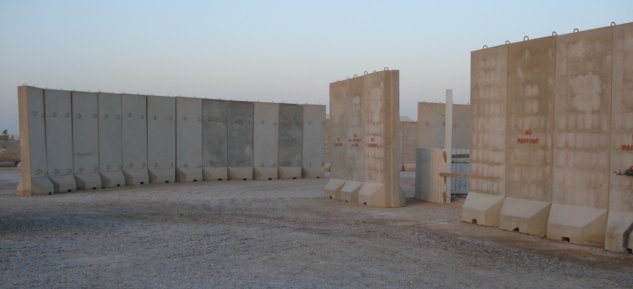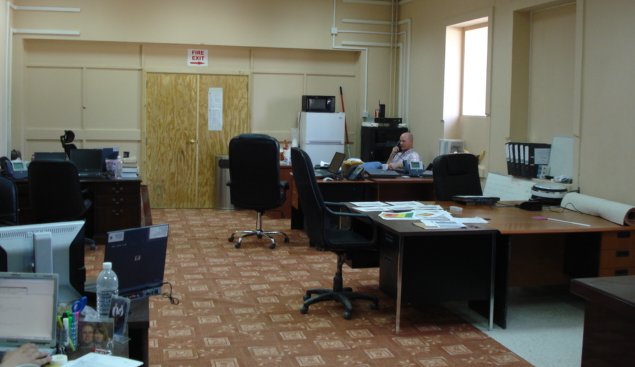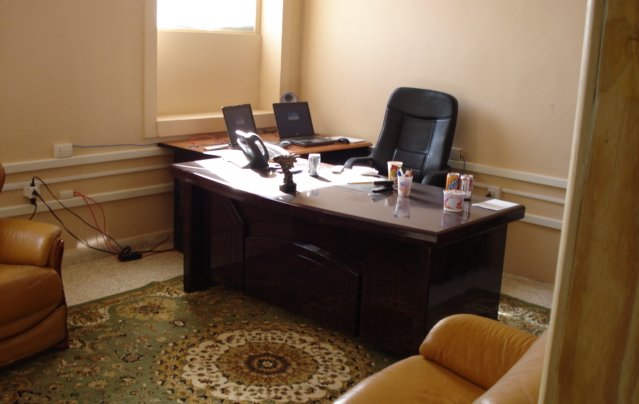Yesterday the sky was blood red. I never saw anything like it. I thought of taking a picture, but I figured the camera couldn’t capture it. I would just look like I shot a picture through some kind of red filter. The red dust comes all the way from Syria. A person who knew enough about dust could probably tell you exactly where every storm started.
I cleaned out my can yesterday. In anticipation of my imminent departure from Iraq, I swept out the whole place and mopped the floor with Pine Sol. The red dust storm negated all that effort. You can shut the door and all the windows and you still cannot keep it out. This would have bothered me a couple of months ago, but no more. I have gotten used to it and now that I will not have to experience it much longer, the various textures and types of dust merely amuse me.
A few days ago we had a real wrath of God storm. Columns of dust blew toward us, accompanied by a fantastic show of lighting bolts that walked across the sky in all directions. When the storm arrived it rained mud for around ten minutes. Then it passed and rumbled away in the other direction.
The day before yesterday was a non-dusty nice day. I got up early in the morning and went out to run about 0600. It is already around 80 degrees at that hour. It feels like a warm October afternoon in Virginia; you just have to time shift. As I walked to the starting point and looked out over the low dirt bluffs, I appreciated the beauty of the sun and shadows on the different shades of khaki. I was seeing beauty in the dirt that I had not seen before.
O happy living things! no tongue
Their beauty might declare:
A spring of love gushed from my heart,
And I blessed them unaware:
Sure my kind saint took pity on me,
And I blessed them unaware.
That, of course, is from the “Rime of the Ancient Mariner,” for no defensible reason, I once made the effort to memorize it. These lines have some application to the subject at hand. The Mariner for the first time can see beauty even of the ghastly water snakes.
Looking is a physical process, but seeing is an act of mental interpretation. I don’t think that I could see these colors and contrasts before. I still think that this is an unpleasant place, but the brown desert of Al Anbar is not completely devoid of attractions and splendor of its own. I wonder if I might have been here long enough. I guess I have seen the elephant.

